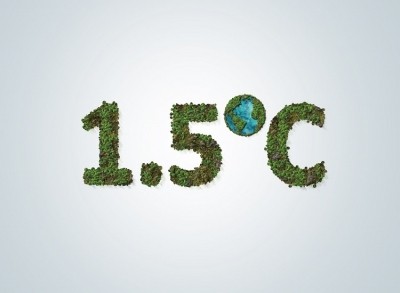EC carbon credit certification: An ‘essential steppingstone’ towards net zero or a potential ‘greenwashing tool’?

The European Commission wants to set up an EU-wide voluntary framework to ‘reliably’ certify ‘high-quality’ carbon removals. The proposal, regulators said, aims to boost innovative carbon removal technologies and sustainable carbon farming solutions. “The proposed regulation will significantly improve the EU's capacity to quantify, monitor and verify carbon removals. Higher transparency will ensure trust from stakeholders and industry, and prevent greenwashing,” the Commission said.
To ensure ‘transparency and credibility’ the proposal sets out rules for the independent verification of carbon removals, as well as rules to recognise certification schemes that can be used to demonstrate compliance with the EU framework.
To ensure the quality and comparability of carbon removals, the proposed regulation establishes four QUALITY criteria:
- Quantification: Carbon removal activities need to be measured accurately and deliver unambiguous benefits for the climate;
- Additionality: Carbon removal activities need to go beyond existing practices and what is required by law;
- Long-term storage: Certificates are linked to the duration of carbon storage so as to ensure permanent storage;
- Sustainability: Carbon removal activities must preserve or contribute to sustainability objectives such as climate change adaptation, circular economy, water and marine resources, and biodiversity.
Climate, biodiversity and carbon farming
The Commission sees carbon removal as essential to balancing emissions that can’t be eliminated as it strives to become a climate-neutral continent by 2050. Industrial technologies – like bioenergy with carbon capture and storage or direct air carbon capture and storage will play a role. However, the bloc also flagged the potential of the agricultural sector – which currently accounts for 23% of anthropogenic greenhouse gas (GHG) emissions – to contribute through carbon farming practices. These, the EC suggested, can sustainably enhance the storage of carbon in soils and forests or reduce the release of carbon from soils, and create a new business model for farmers.
Carbon removals, the EC continued, can and must bring ‘clear benefits’ for the climate. It said carbon removal activities which provide benefits for biodiversity will be prioritised.
“The proposal will enable innovative forms of private and public financing, including impact finance or result-based public support under State aid or the Common Agricultural Policy. The Commission will continue funding carbon removal action on the ground through the Innovation Fund (which can finance BECCS and DACCS projects, among others), the Common Agricultural Policy, the Regional Development Fund, the LIFE programme and the Horizon Europe programme (including the Mission ‘A Soil Deal for Europe'),” it stated.
Jan Plagge, President of industry body IFOAM Organic, welcomed the focus on soil health and biodiversity and called for the work farmers have already undertaken to build soil health to be recognised in implementation . “The Commission’s proposal on carbon certification should recognise the efforts of front-runners like organic farmers who are already improving carbon stocks. Soil health is a cornerstone of organic and organic farmers apply practices that enhance soil fertility and increase soil organic carbon stocks. The requirement for additionality should not disadvantage farmers who are already operating under a certified sustainability scheme like the EU organic label. Organic certification ensures not only a contribution to climate mitigation, but also to climate adaptation, resilience and protection of biodiversity and natural resources.”
However, IFOAM suggested, the proposal has some clear areas of concern for farmers. It fails to propose concrete safeguards, does not require a positive impact on all sustainability objectives and leaves ‘crucial issues unanswered’.
“The climate and biodiversity crisis are interconnected and it is crucial that the certification framework ensures that “carbon farming” contributes to biodiversity and ecosystem protection. The legislation needs to be explicit on how to ensure carbon farming contributes to the proposal’s sustainability objectives, other than carbon sequestration,” argued Eric Gall, IFOAM Organics Europe’s Policy Manager. “It should outline beneficial farming practices, which should be considered as carbon farming and exclude those that harm biodiversity and should not be eligible to certification. Carbon removals in the land sector should not undermine the protection of biodiversity and ecosystem integrity. Conversely, as they deliver multiple benefits for climate and biodiversity, organic farming and agroecological practices should be considered as eligible carbon farming practices.”
Soil organic carbon stocks are highly reversible and susceptible to changes of agricultural practices, but they are also impacted by climate change the framework needs to ensure that soil organic carbon stocks are maintained and protected in the long run, the organic farming body suggested.
The long-term nature of soil carbon sequestration and its reversibility require good management practices to be applied on the long-term so that soils do not lose the sequestered carbon to the atmosphere. Making carbon removals part of an agroecological transition would ensure long-term management and conservation of soil carbon stocks, contributing to climate mitigation and at the same time to soil health.
Funding and competition in the emerging carbon markets
Of critical importance, IFOAM suggested, is the issue of funding and how farmers will benefit from their carbon removal efforts. The framework is ‘unclear’ on financing carbon removals and leaves the door open to voluntary carbon markets. “Organic farmers doubt that carbon markets are the right policy tool to provide fair and reliable funding for farmers to improve soil carbon sequestration. Moreover, the framework does not provide any safeguards to prevent land commodification and does not address the risk of land grabbing. Clear social and environmental safeguards are needed to prevent the certification of carbon removals to become a greenwashing tool,” the organisation warned.
And it isn’t just organic farmers that have their reservations about the European Commission’s approach.
Food businesses are increasingly committing to reaching net zero emissions in like with the Science Based Targets Initiative. “Food and drink businesses will play a significant role in the process of certifying carbon removals. Indeed, many businesses are already committed to science-based targets for greenhouse gas reduction, requiring them to work within their value chains to meet their climate goals,” observed Dirk Jacobs, FoodDrinkEurope Director General.
“The establishment of an EU regulatory framework for the certification of carbon removals is another essential steppingstone towards achieving the EU’s net-zero objective,” he said. However, the food and beverage industry expert continued: “The regulation should allow the agri-food chain to claim removals generated within the food value chain, with a preferential access to credits generated by those removals.”
Why should F&B manufacturers have ‘preferential access’ to the carbon removals generated within the agricultural sector? Because, without it, they could find themselves effectively competing with other industries in the carbon markets, meaning that their ability to inset carbon removals within their own value chains – rather than offsetting GHG emissions from elsewhere – could be hampered.
“The demand for carbon credits that will come from non-food companies will compete with the ability of agri-food actors to reduce emissions within their own value chains. In such situation, the food and drink industry would need even more ambitious emission reductions to achieve net-zero targets set for the sector,” Léna Girard, Manager of Economic Affairs at FoodDrinkEurope, told FoodNavigator.
“For this reason, FoodDrinkEurope asked the European Commission to carefully consider trading removals outside of the agri-food supply chain. We underscored the potential of the proposal on certifying carbon removals in supporting the decarbonisation of the agri-food chain, if actors of the latter value chain are granted preferential access to carbon credits resulting from certifications.”
Next steps: Trilogue process and methodology review
The Commission proposal will now be discussed by the European Parliament and the Council, in line with ordinary legislative procedure. Based on the QUALITY criteria, the Commission will develop tailored certification methodologies for the different types of carbon removal activities, supported by an expert group. The first meeting of the expert group is planned for the first quarter of 2023.


















